Chemical-recycling – Biodegradable-Plastic 15-03-2022 - Arhive
Chemical-recycling – Biodegradable-Plastic
-Aligning PCR supply with demand
“Exponential growth” in supply will be needed to meet recycled-content targets.
The supply of postconsumer recycled resins typically used in packaging is insufficient to meet projected 2025 demand, which is being driven by legislative mandates and voluntary brand commitments, particularly for food-contact applications, according to the analysis provided by representatives from Independent Commodity Intelligence Services (ICIS), with U.S. offices in Houston. Paula Leardini, senior analyst for plastics recycling at ICIS, and Emily Friedman, the company’s recycled plastic senior market editor, spoke during the Plastics Recycling Conference, which was hosted by Resource Recycling and the Association of Plastic Recyclers on March 7-9 outside of Washington.
The current picture
Leardini said 48 million metric tons of mechanical recycling capacity were available globally in 2021 across more than 2,500 locations. She added that the average capacity at these locations was 20,000 metric tons per year, which is dwarfed by production volumes at petrochemical facilities. Chemical-recycling – Biodegradable-Plastic
Recycled polyethylene terephthalate (PET) and high-density polyethylene (HDPE) have approximately 40 percent of the global market, with the bulk of production occurring in the Asia Pacific region, followed by Europe and North America. Much of the PET recycled in Asia and North America is used in the fiber market, while sheet applications predominate in Europe, Leardini said.
However, in North America (the U.S. and Canada), the bottle market overtook the fiber market for the first time in 2020, according to data from NAPCOR (National Association for PET Container Resources). Leardini said that in 2017, only 25 percent of PET bottles collected for recycling went to the bottle market. In 2020, that number grew to 41 percent. Chemical-recycling – Biodegradable-Plastic
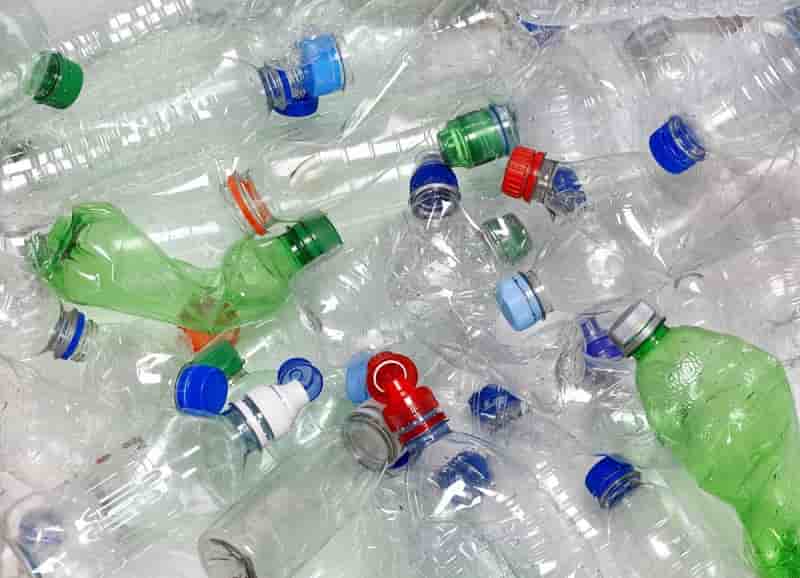
-Omv and Alba recycling to collaborate on new waste-sorting plant for chemical recycling
OMV AG (Vienna, Austria) and ALBA Recycling have started exclusive discussions to jointly build and operate an innovative sorting plant in Walldürn, Germany, for the further sorting of mixed plastic waste for chemical recycling. A final investment decision is expected in 2022. Chemical-recycling – Biodegradable-Plastic
ALBA Recycling operates five sorting plants in Germany for lightweight packaging and sorts roughly one third of Germany’s lightweight packaging waste – over 800,000 tons per year. ALBA Recycling thereby has Germany’s biggest sorting capacity at present combined with high output quality and high recycling rates.
The collaboration will secure the delivery of high-quality suitable feedstock for chemical recycling from ALBA Recycling to OMV to help close the loop for plastics. An innovative state-of-the-art sorting plant designed by ALBA Recycling will have the capacity to process over 200,000 tons per year of post-consumer mixed waste into suitable feedstock for the production of virgin polyolefins. This innovative sorting process facilitates the further extraction of polyolefins from a waste fraction that currently requires incineration. This innovative sorting process has been tested at industrial scale and the output has been successfully processed as feedstock in OMV’s ReOil pilot plant.
Maximilian Grasserbauer, OMV Vice President Plastic to Plastic: “Used plastics have a significant impact on the environment and climate. Reducing such impacts while retaining the usefulness of plastics requires a shift towards a more circular plastics system. Chemical recycling like the ReOil® process is the ideal addition to well-established mechanical recycling methods. In ALBA, we see a very promising cooperation partner who has many years of expertise in recycling used plastics and with whom we would like to invest in the future. In an innovative future that enables a bigger circular economy for plastic waste”.
“We are delighted to combine the sophisticated chemical recycling of OMV with our world-leading sorting technology to take the next step in the circular economy for a world without waste”, said Dr. Axel Schweitzer, owner of ALBA Recycling. “Chemical recycling is not a rival for mechanical recycling as mechanical recycling is the most efficient way to deal with mono-fractions from the sorting process. But chemical recycling is the only solution for mixed plastic waste like composite and multilayer plastics. We urgently need to recycle this material as well to close the loop for our customers. OMV and ALBA Recycling will turn this mixed plastic waste, which is incinerated today, into an important source to produce enough recycling material for the sustainable production of goods and packaging.” Chemical-recycling – Biodegradable-Plastic
A ReOil pilot plant has been operating in the Schwechat Refinery in Austria since 2018, capable of turning 100 kg of used plastics into 100 liters of synthetic feedstock per hour. The pilot plant has been running for a total of 14,500 hours since its commissioning, enabling an improvement in the thermal cracking process and supporting the further scale up of the ReOil technology.
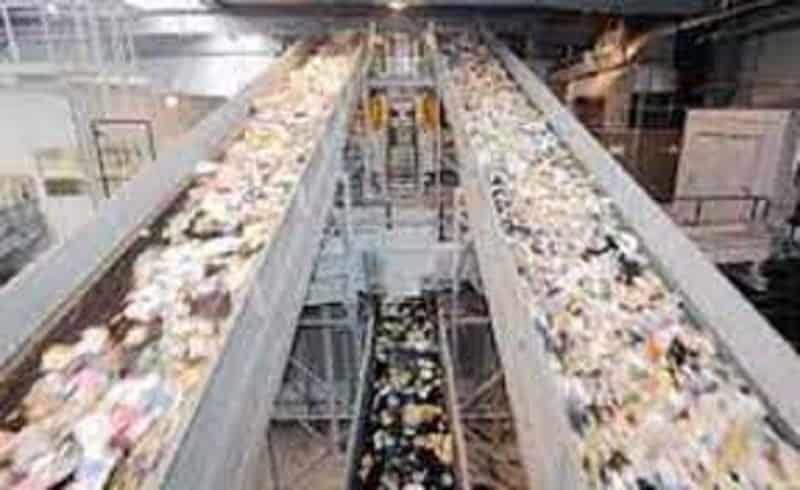
-Oerlikon showcases new hydro-charging solution
Oerlikon Nonwoven premiered its new hycuTEC hydro-charging solution at the recent Filtech exhibition in Cologne. Chemical-recycling – Biodegradable-Plastic
This new technology for charging nonwovens is said to enable the filter efficiency to be increased to more than 99.99% which, as a result, provides meltblown producers with considerable material savings along with a greater filtration performance.
The hycuTEC is described by Oerlikon as the market’s first industrially-manufactured hydro-charging solution that can also be seamlessly integrated into the production process. It is also easily retrofitted to existing systems as a plug & produce component – a first within the market.
Whereas classical hydro-charging processes charge the finished nonwoven material the hycuTEC concept is based on the all-round charging of each filament. Through controlled atomization, a charge is evenly transferred to the fibres from the water spray. And a special additive is used to permanently bond the charge to the surface of each fibre. The result is filter media with a uniformly stable charge over the entire cross-section and an effective fibre surface area about 10 times greater than that of surface-charged media.
hycuTEC hydro-charging can therefore reduce the pressure loss in typical FFP2 filter media to less than a quarter. Filtration efficiencies of more than 99.99% are easily achieved in typical filter media of 35 g/m² at 35 Pa, the company says, citing tests at pilot customers manufacturing FFP2 face masks who report confirmed quality increases due to the improved filtration with a simultaneous reduction in material usage of 30%. Chemical-recycling – Biodegradable-Plastic
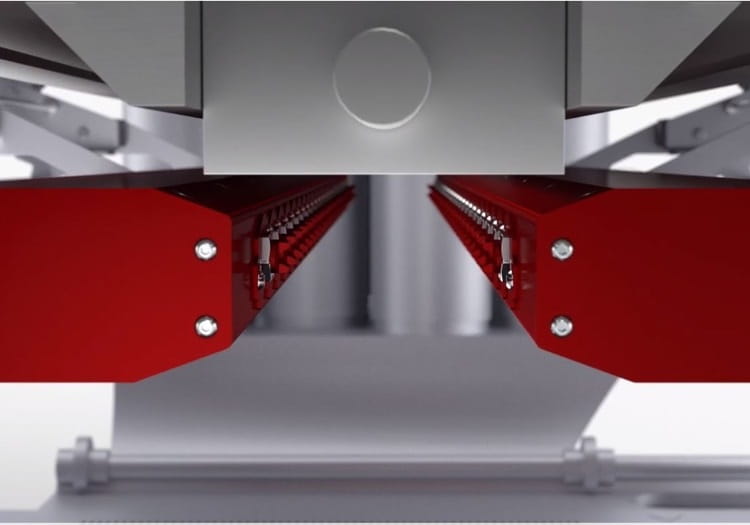
-Biodegradable Plastic Technology
Biodegradable Plastic technology is an environmentally responsible solution for your plastic product, film, or packaging needs.
d2w is a masterbatch which, at little or no extra cost, turns ordinary plastic at the end of its useful life—in the presence of oxygen—into a material with a different molecular structure. At the end of the process it is no longer a plastic, and has changed into a material that is biodegradable (by bacteria and fungi) in the open environment. Chemical-recycling – Biodegradable-Plastic
Stages of biodegradation:
- OBP masterbatch is added at the manufacturing stage.
- Film containing OBP masterbatch is extruded and then converted into bags or packaging
- The product behaves like conventional plastic during its intended service life.
- After its service life, the bag or packaging may be recycled if collected, but :
- If it ends up in the open environment the OBP masterbatch takes effect and the product begins to degrade in the presence of oxygen until it is biodegradable.
- The product will then biodegrade in a continuous, irreversible and unstoppable process leaving nothing more than carbon dioxide, water and biomass, and no heavy metals or other toxic residues.
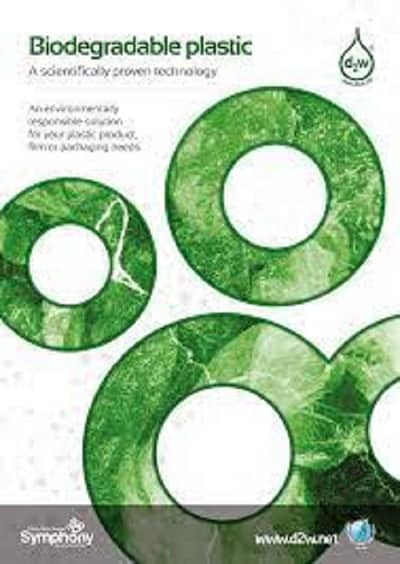
-BASF closes EPS recycling loop and launches Neopor® McycledTM containing recycled material
Neopor® F 5 McycledTM contains recycled material and boasts proven product properties for use in the building industry
Certified recycled material from mechanically recycled expanded polystyrene (EPS) waste Chemical-recycling – Biodegradable-Plastic
New EPS raw material with an improved sustainability profile: Neopor® McycledTM complements the mass-balanced products Styropor® CcycledTM and Neopor® BMB
Ludwigshafen, Germany, 11 March 2022 – BASF has expanded its portfolio of graphitic expandable polystyrene (EPS) granulate. Neopor® F 5 McycledTM contains 10 per cent recycled material and is suitable for numerous applications in buildings, particularly facade insulation. The new raw material is produced using the extrusion process and offers the same proven mechanical properties and optimised insulation performance as Neopor® F 5200 Plus.
Mechanically recycled EPS for building insulation
BASF has developed the new raw material together with Karl Bachl GmbH & Co KG and turned it into a market-ready product. The quality of the recycled material used plays a pivotal role in meeting the exacting product demands in the various construction applications. This high quality standard is one of the keys to the success of the cooperation between BASF and Bachl. Both the recycled material used and the insulation raw material are REDcert2-certified. The recycled material comes from mechanically recycled EPS waste. Currently (Conversio study from 2019), at least 42 % of the EPS packaging waste in Germany is recycled.[1] “Today’s EPS insulation materials from the construction and packaging sectors can be fully recycled. At present, the high-quality recycled material is mainly sourced from waste streams from the packaging sector. That means we can already ensure that the recycled material is of the necessary high quality,” says Michael Küblbeck, Managing Director of Karl Bachl GmbH & Co KG.
Climate goals cannot be achieved without EPS
The ambitious climate targets cannot be achieved without energy-efficient building envelopes. In both new construction and renovation projects, insulation materials made of Neopor® are now standard in facade insulation. During their decades of use, they significantly reduce CO2 emissions from buildings. “Closing material loops and reducing CO2 emissions are two of the priorities of current climate policy. Our sustainable Neopor® insulation raw materials contribute directly to these efforts. With Neopor® F 5 McycledTM, BASF can offer an insulation raw material with a closed EPS recycling loop for the first time. At the moment, high-quality recycled EPS material is still in limited supply. Chemical-recycling – Biodegradable-Plastic
In the coming years, we want to work with our European partners to increase EPS recycling along the entire value-added chain and expand it to other waste streams. This will pave the way for more widespread use of mechanically recycled EPS in high-quality applications,” says Klaus Ries, Vice President Business Management Styrenics Europe at BASF.
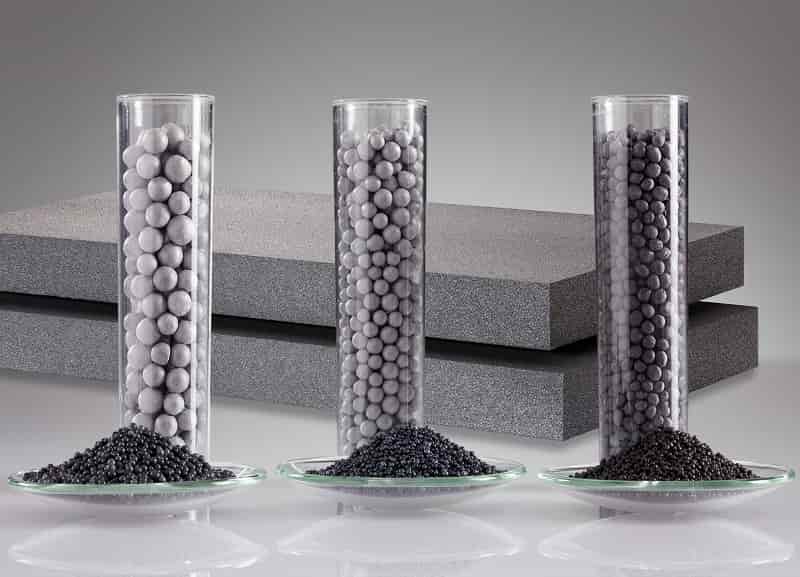
-List of countries that depend on Russian oil
Russia is the second largest exporter of crude oil
New Delhi: Ever since Russia’s invasion of Ukraine, the price of Brent crude oil is on boil. It has recently reached near $140 per barrel.
Although the price has cooled down and reached $111 per barrel, it is likely to spike again as various countries are imposing sanctions on Russia over Ukraine crisis.
As per 2019 data, many countries imported the oil from Russia which is the second largest exporter of crude oil in the world. Chemical-recycling – Biodegradable-Plastic
List of top crude oil exporters in the world
As per 2019 data, the following is the list of the top crude oil exporters.
Saudi Arabia ($145bn)
Russia ($123bn)
Iraq ($73.8bn)
Canada ($67.8bn)
US ($61.9bn)
Which country imports Russia oil?
As per 2019 data, many countries have imported crude oil from Russia.
Out of the total export of Russian oil, China bought 27.3 percent worth $33.7 bn whereas India imported only 0.9 percent worth $1.11 bn.
List of countries that depend on Russian oil
China (27.3%)
Netherlands (16.5%)
Germany (6.91%)
South Korea (5.98%)
Belarus (5.29%)
Poland (5.06%)
Italy (4.83%)
Finland (3.59%)
Turkey (2.99%)
Japan (2.64%)
US (1.82%)
Slovakia (1.76%)
Hungary (1.52%)
Lithuania (1.36%)
Czechia (1.36%)
Bulgaria (1.35%)
Romania (1.15%)
UK (0.99%)
India (0.9%)
Greece (0.82%)
France (0.8%)
Sweden (0.76%)
Serbia (0.54%)
Croatia (0.51%)
Spain (0.5%)
Portugal (0.41%)
Canada (0.34%)
Singapore (0.23%)
Malaysia (0.23%)
Denmark (0.2%)
Latvia (0.16%)
Thailand (0.16%)
New Zealand (0.16%)
Norway (0.13%)
Belgium (0.11%)
Australia (0.11%)
Azerbaijan (0.1%)
Austria (0.094%)
Philippines (0.078%)
Myanmar (0.045%)
Cuba (0.032%)
Curacao (0.031%)
Colombia (0.023%)
UAE (0.019%)
Other Asia (0.0066%)
Consumers, producers of crude oil
The Organization of the Petroleum Exporting Countries (OPEC) which is a multinational organization comprised of 13 member nations produces 40 percent of the world’s crude oil.
Outside OPEC too, there are major crude oil-producing countries. The top five oil producing countries are as follows
US (18.61 million barrels per day),
Saudi Arabia (10.81 mbpd)
Russia (10.5 mbpd)
Canada (5.23 mbpd)
China (4.86 mbpd)
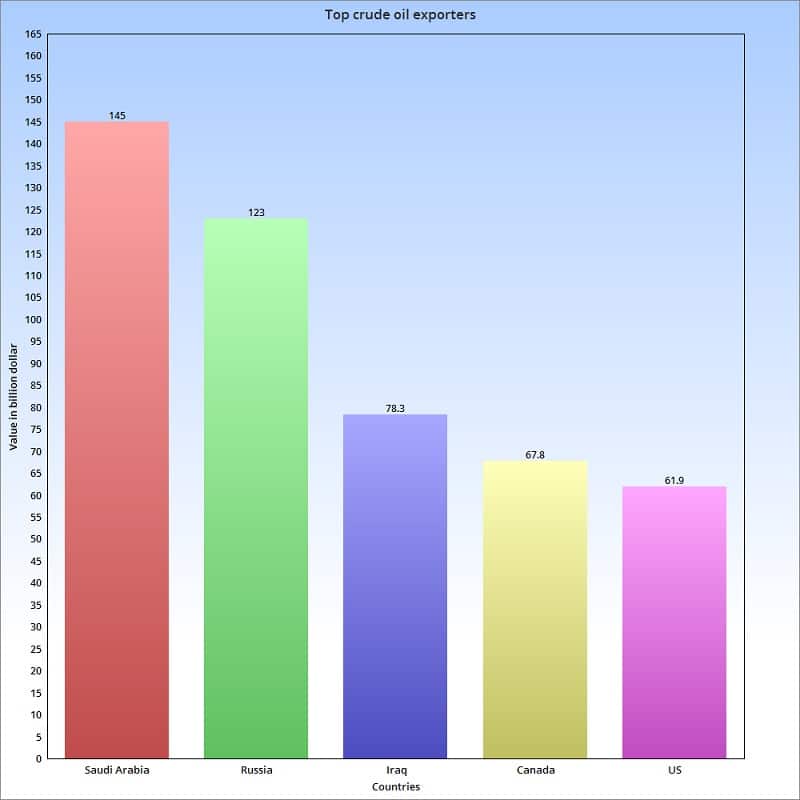
Chemical-recycling – Biodegradable-Plastic
